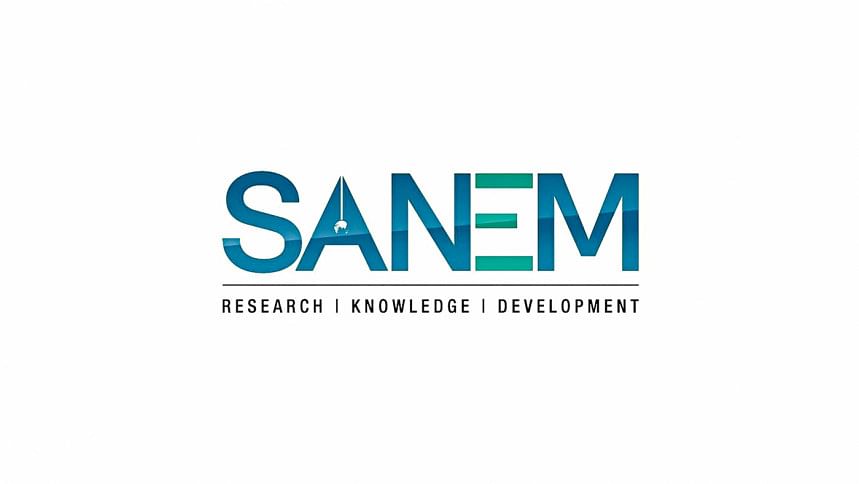ESG failure may cost Bangladesh 30% of EU exports: Sanem

If European countries make ESG standards mandatory and Bangladesh fails to comply, exports to the bloc may immediately drop by around 30 percent, according to the South Asian Network on Economic Modeling (Sanem).
ESG – short for Environmental, Social and Governance – is a set of standards measuring a business's impact on society, the environment, and how transparent and accountable it is.
"We estimate that exports to the EU would fall by 30 percent due to the economy-wide effects of non-compliance by exporters with EU sustainability measures," said Sanem Programme Director Zubayer Hossen.
In other words, overall exports will fall by around 10 percent to 12 percent, he said.
The EU has enforced strict ESG and sustainability reporting standards through regulations. Germany's supply chain act mandates that companies ensure human rights and environmental due diligence across their entire supply chain, he added.
It is important to strengthen compliance with ESG standards in industries, ensure supply chain transparency, invest in green technology, and enhance capacity, said an expert
Japan, the US, and other markets have also included environmental issues in their trade practices, said Hossen.
So, it is important to strengthen compliance with ESG standards in industries, ensure supply chain transparency, invest in green technology, and enhance institutional and human capacity, he said.
He was delivering a presentation at the launch of the Sanem Sustainability Centre, a new wing of the research organisation, at Sheraton Dhaka on Tuesday.
Aiming to advance sustainability-focused, evidence-based development in Bangladesh and across South Asia, the centre will focus particularly on emerging priorities of ESG standards to ensure that Sanem's work remains relevant to both national development frameworks and international sustainability benchmarks.
In addition to producing high-quality research, the centre aims to serve as a catalyst for systemic change by engaging with a wide range of stakeholders, including government agencies, the private sector, development partners, research organisations, and civil society organisations.
"Give us some rigorous, analytical basis for taking action; and bring people together," said Prof Lutfey Siddiqi, special envoy on international affairs to the chief adviser, while addressing the event as the chief guest.
Bangladesh is preparing for the least developed country (LDC) status graduation and navigating increasing global regulatory pressures, said Sanem Executive Director Selim Raihan.
"…The question is whether our exporters, policymakers, researchers, and development partners are aligned and ready to meet these challenges—especially new standards around ESG," he said.
These requirements carry costs, and without proper coordination, those costs may unfairly fall on the most vulnerable, particularly workers, he said.
"Through this centre, we aim to foster collaboration across stakeholders and ensure a just and inclusive transition," he said.
"Analysis from this centre is going to add value to our work," said Md Abdur Rahim Khan, additional secretary (export), export wing, Ministry of Commerce, as the special guest.
"With the changing scenario—when Europe is working on the Green Deal, they are working on digital passports, digital product passports, and other initiatives around global buyers—Bangladesh is, of course, in no position to deny the need for sustainability and circularity in its supply chain," he added.
Senior officials from the Ministry of Industries, Department of Environment, Energy and Mineral Resources Division, Bangladesh Bank, Bangladesh Economic Zones Authority, and Bangladesh Export Processing Zones Authority were present.
Officials from the World Bank, Asian Development Bank, International Finance Corporation, Foreign, Commonwealth and Development Office, United Nations Development Programme, United Nations Industrial Development Organization, International Labour Organization, and the Food and Agriculture Organization were also present.

 For all latest news, follow The Daily Star's Google News channel.
For all latest news, follow The Daily Star's Google News channel. 



Comments